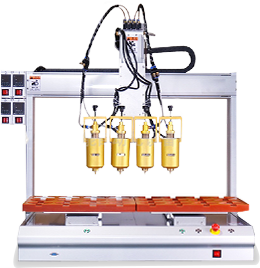

Metal non-standard screws / special-shaped bolts are customized fasteners designed to meet special assembly needs. They are made of high-quality metal materials such as alloy steel, stainless steel, copper alloy, etc., and are manufactured through cold heading, hot forging, CNC turning and other processes. They break through the standard specifications and shape limitations of traditional bolts, and can design unique head, rod, and thread structures according to customer needs. They are widely used in aerospace, automobile manufacturing, precision equipment and other fields to solve the problems of fastening and connection under complex working conditions.
From raw material procurement to finished product delivery, we implement the ISO 9001 quality management system and ensure quality through full-process testing. Some common specifications and application examples are as follows:
Type | Material | Typical structural features | Application scenarios |
Special head bolt | Alloy steel | Petal-shaped head, fine pitch thread | Tightening of special parts of aircraft engines |
Stepped shaft bolt | 316L stainless steel | Multi-stage diameter stepped stem | Connection of multi-layer components of marine equipment |
Locking bolt | Copper alloy | Stem with boss, short thread design | Positioning of conductive components of electrical equipment |
III. Product Details
1. Material Type
Alloy steel: Alloy steels such as 42CrMo and 35CrMo have high strength and toughness after quenching and tempering. They are suitable for scenes with extremely high load-bearing capacity requirements such as automobile chassis and heavy machinery, and can withstand large shear and tensile forces.
Stainless steel: 304 stainless steel has good comprehensive performance and is suitable for general industrial environments; 316L stainless steel adds molybdenum elements, which has stronger corrosion resistance and is often used in food processing, medical equipment, marine engineering and other fields with strict requirements on hygiene and corrosion resistance.
Copper alloy: Copper alloy materials such as H62 brass and phosphor bronze have excellent electrical conductivity, thermal conductivity and wear resistance, and are widely used in the connection and fastening of electrical equipment and electronic instruments.
2. Manufacturing process
Cold heading: The metal blank is extruded through a die to efficiently form the basic shape of the bolt head and the rod, which is suitable for mass production and can ensure high dimensional accuracy and production efficiency.
Hot forging: Forging after heating the metal billet can produce large and complex bolts, improve the material density and mechanical properties, and is suitable for special-shaped bolts with high strength requirements.
CNC machining: Using CNC lathes, milling machines and other equipment, the bolts are finely turned, milled, drilled and processed to ensure that the thread accuracy and special structural dimensions meet the design requirements.
Surface treatment: Provide a variety of surface treatment processes such as galvanizing, nickel plating, blackening, Dacromet, etc. to enhance the rust resistance and wear resistance of the bolts, while meeting different appearance requirements.
 Headquarters tel.
Headquarters tel. E-mail.
E-mail.